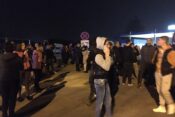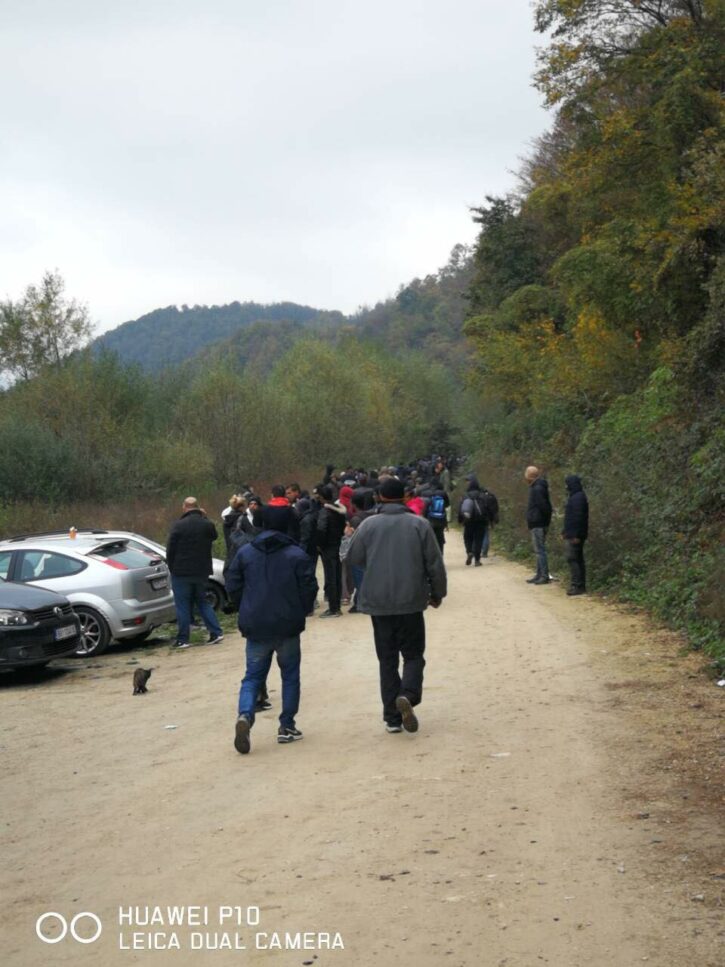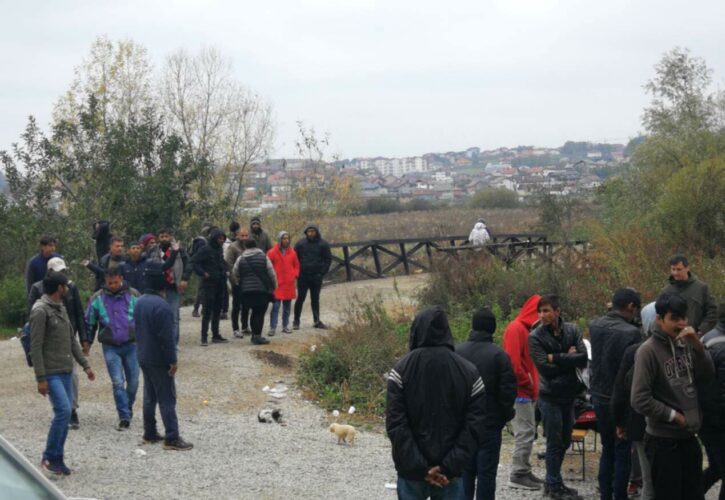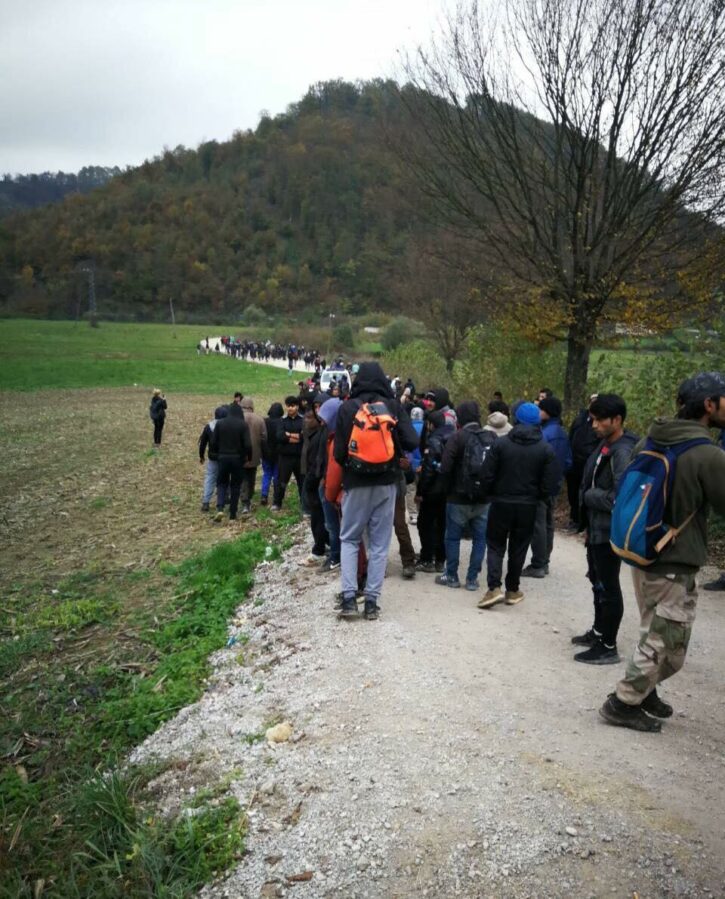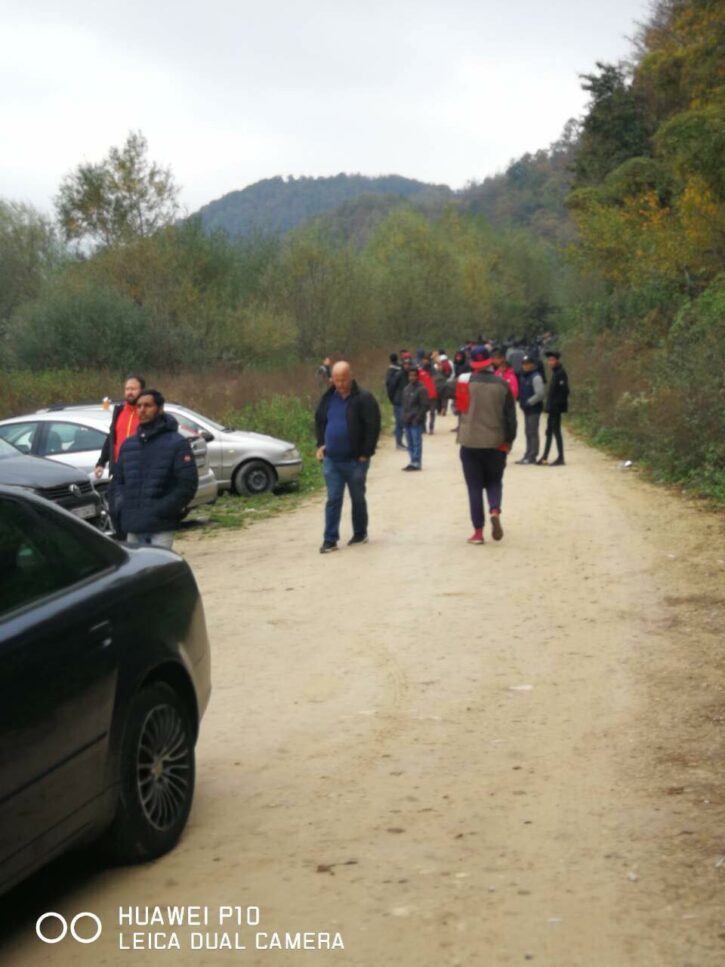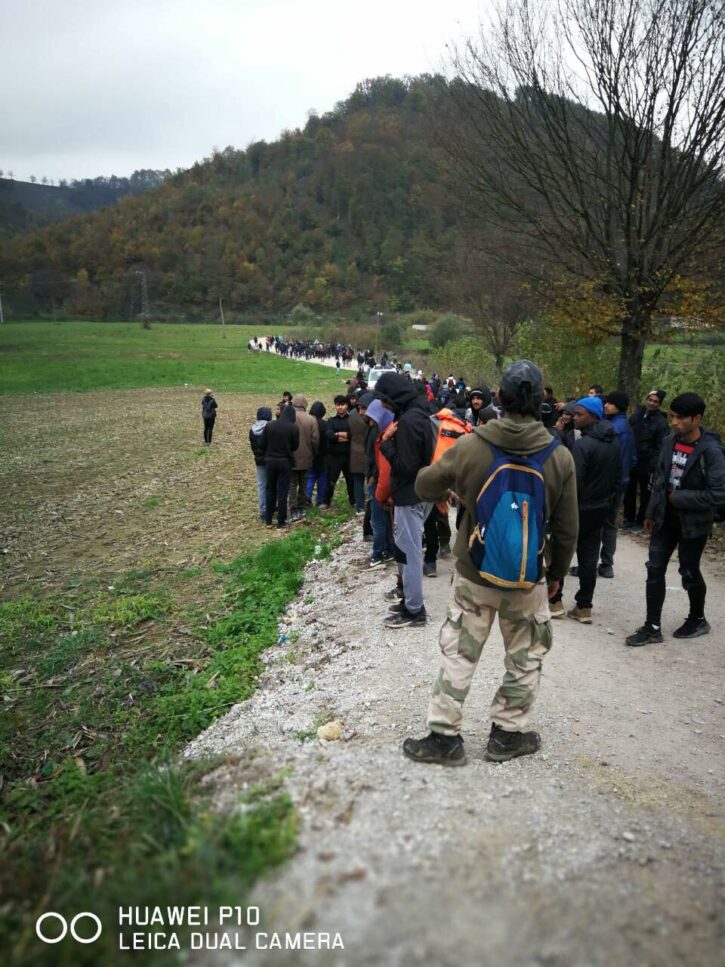
A group of some 200 migrants has arrived at the Bosnia-Croatia border crossing in Maljevac on Monday morning and has blocked one road lane, the police confirmed for N1.
“Some 200 migrants are already there at the Maljevac border crossing. The border hasn’t been blocked yet and the transport of goods and people is still ongoing. (…) Our border police, as well as the border police of Croatia, were informed about this. Our police officers are on the spot,” said police spokesperson Snezana Galic.
The border crossing is located near the northwestern Bosnia’s town of Velika Kladusa, which hundreds of migrants occupied over the past months in an attempt to get as close to the border with the European Union as possible and to eventually cross it. Their final destinations, they say, are in the western Europe countries.
The situation is similar in Bihac, another town of this region bordering Croatia. Hundreds of its citizens took to the streets over the past weekend, protesting against the influx of migrants in that area and demanding from the state authorities to deal with this issue. According to Bihac residents, their safety was jeopardised and they were suspecting the origin and the past of some of the migrants in their city.
There is no refugee or migrant centre in any of these two towns, which would accept the migrants for the transitory period of their stay in Bosnia. Instead, they were on their own initiative forming tent camps in parks and other public areas or even occupying abandoned buildings.
According to Galic, no new protest has not been reported with the police but they were announced through social networks.
“The police precinct in Bihac hasn’t received any request by organisers of the gathering and couldn’t issue an approval for that. We are closely following the situation and will act in accordance with the law and situation,” she added.
Bosnia’s Security Minister Dragan Mektic commented the issue on Sunday, and said the local police forces and interior ministries “must act more repressively toward the migrants.”
“They can’t be allowed to sleep on the streets and parks or to violate the law and order,” he underlined.


